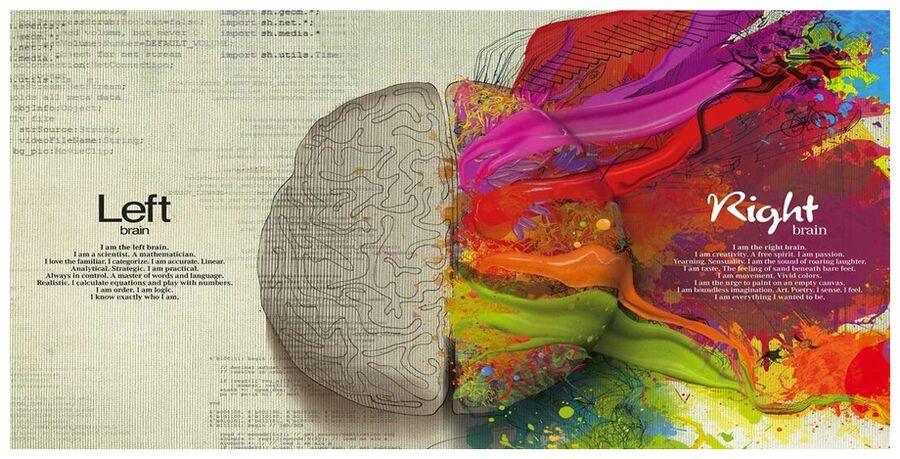
Trend following: a valid school of life
In a broader sense, trend following strikes me as a valid school of life in general. Advancing in any endeavor, achieving a positive departure from the status quo depends on the quality of our decisions and our commitment to those decisions. What we think, feel, discuss or imagine makes little difference: it is the decisions that we take and execute that count. Every decision we make changes the trajectory of our life, whether in small or big ways. The unnerving part is that we can't always predict these changes.
Some decisions will lead to unforeseen consequences and at times outcomes that are opposite of those we intended or desired. Regardless, taking those risks is integral to every departure from the status quo, which is itself not a fixed position but usually a state of gradual but steady decay.
As with trend following, advances in life tend to be won not in a straight line but in discrete, sudden leaps where significant changes come together all of a sudden and "seemingly out of nowhere," followed by long stretches of time marked by a sort of, "one step forward, two steps back" footwork that can seem interminable and exasperating. Those discouraging flat patches can be a test of determination and perseverance. They can be detrimental to those travellers who lack in commitment, discipline and patience in their pursuits. In a way, the sudden leaps forward can be regarded as rewards for the risks taken and efforts expended in the face of uncertainty.
So far so good - I believe this is all rather straightforward and most of us can identify with this characterization of life. What's a lot less straightforward is the way we arrive at the decisions to venture in the first place.
The left brain conundrum
Speculation is dealing with the uncertain conditions of the unknown future. Every human action is a speculation in that it is embedded in the flux of time.With respect to any speculative endeavor, our decisions stem from our conscious thinking about our situation, weighing the risks, the pros, the cons and the desired consequences of our actions. It's important to note that our internal monologues, the thoughts we think only to ourselves, are always formed in language. Thinking a thought without language is almost inconceivable.
Ludwig von Mises
That's where things get slippery. Our internal monologues largely define our relationship to the outside world. Because they are expressed in language, they are predominantly formed by our brain's language-heavy left hemisphere, which comes with certain important handicaps. But before we go there, a word about the brain's hemispheres: the discovery of the differences between the left hemisphere (LH) and the right hemisphere (RH) of the brain has been the single greatest advance in neuropsychology in over 50 years.
These differences are relevant to every aspect of human experience and a certain understanding of these differences has become part of our popular culture: it's the contrast between the rigid, rule-abiding LH vs. the artsy, freewheeling RH. But Dr. Iain McGilchrist, arguably the world's greatest authority in this domain, maintains that almost everything we thought we knew about this dichotomy is wrong.
In his book, Master and his Emissary, McGilchrist covers the differences between the two hemispheres in painstaking detail (you can find many valuable podcasts and lectures with Dr. McGilchrist on the internet).
Here are only a few examples relevant to decision making:
- LH tends to rely heavily on logic, even if its logic could be very flawed. LH will go out of its ways to conceal or ignore these flaws.
- LH deals with individual bits of information in isolation, ignoring the broader reality. In this it creates a self-reflexive virtual world which is decontextualized and mechanistic.
- LH tends to focus on single solutions that seem like the best fit to what it already knows and then latches onto it. Any discrepancies that fall outside its pre-existing conceptions tend to get ignored or rejected.
- LH has difficulty disengaging: once it's contrived a pattern in its thinking it tends to keep with it and resist any changes that are at odds with its internal logic. Anomalies are ignored, not highlighted.
- LH is obsessed with being right and being in control. It abhors uncertainty.
- LH is quick to draw conclusions from limited information, enshrine it as truth and then stubbornly insist on its correctness.
The contrast between the way our brains' left and right hemispheres arrive at truth was perhaps best illustrated by a series of experiments by V. L. Deglin and Marcel Kinsbourne who confronted their subjects with false-premise syllogisms while temporarily deactivating one or the other of their brain's hemispheres. Here's an example:
1. Major premise: all monkeys climb trees
2. Minor premise: the porcupine is a monkey
3. Implication: porcupines climb trees
When this syllogism was presented to a subject's left hemisphere (RH temporarily inactivated), this individual accepted the implied conclusion is true, that porcupines climb trees since they are monkeys. But, when the experimenter asked, 'But is the porcupine a monkey?' she replies that she knows it is not. But because she accepted the sylogism's implication she continues to insist that porcupines climb trees.
When the same syllogism was presented to this same subject's RH (LH temporarily inactivated, she replied, "How can it climb trees - it's not a monkey, it's wrong here." If the experimenter points out that the conclusion must follow from the premises stated, she replied indignantly: "But the porcupine is not a monkey!"
The two paths to truth
In subject after subject, when similar false-premise syllogisms were presented, the same pattern emerged. Intact individuals display common sense reaction: 'I agree it seems to suggest so, but I know in fact it's wrong.' RH dismisses the false premise, and the implied conclusion falls away as absurd. But LH will tend to stick with the wrong conclusions. Iain McGilchrist highlights the relevance of Deglin and Kinsbourne's experiments:
"The design of the above experiment specifically tests what happens when one is forced to choose between two paths to the truth in answering a question: using what one knows from experience or following a syllogism where the premises are blatantly false. The question was not whether the syllogism was structurally correct, but what actually was true. ... When the conclusion flies in the face of one's experience, it is the right hemisphere that gets the answer correct and left hemisphere which is distracted by the logic of the syllogism and gets the answer wrong. Right hemisphere acts as the 'bullshit detector.'"In the ordinary course of life, our hemispheres can't be experimentally inactivated; both hemispheres should work in concert to help us navigate life's decisions, taking its full context into account. However, there is much evidence that our hemispheres can and do dissociate, which can leads us to dubious truths like for example, when a large percentage of people insist that men can get pregnant.
This may be because our RH 'bullshit detectors' can sabotaged even in conditions of ordinary life, perhaps through devices like religious indoctrination, ideology, peer pressure or simply strong convictions. Indeed, strong attachment to theory or ideology can blind us to truths that are right in front of us and turn us into zealots, or outright idiots (what Nassim Taleb contemptuously termed IYI - intellectual, yet idiot).
Making decisions in the face of uncertainty
The pitfalls seem to be concentrated in our chattering left hemisphere with its strong attachments to dogma, ideology or theory. This is clearly not the optimal circuitry for making decisions in the face of uncertainty, especially since uncertainty is part and parcel of many of the most important decisions we make in life.
I know, someone will protest: then how come we survived and thrived during most of these past 200,000 years? I am not questioning our ability to navigate life as we'd lived it during the 99% of our history as a species, in small kinship groups and the natural world which did not require scientific theories to discern porcupines from monkeys.
Our natural habitat has been a stable environment that didn't go out of its way to confound us. But today we must navigante a much more abstract and unpredictable world of very complex political, social and economic structures which we only vaguely understand but which define our lives almost entirely. Making our way in that world often obliges us to rely on theoretical models and conscious theorizing about the way things work or should work.
Are vaccines safe and effective? Is Keynesian economics valid? Will climate change kill us all? Is individual selfishness the best way to maximize collective good? Our conscious theorizing about such issues almost entirely depends on our LH circuitry which is at once quite prone to error and quite reluctant to acknowledge it.
Our error-prone conscious theorizing
We all have personal experience of getting things wrong, but especially of other people getting it wrong, since our LH's default mode is to reject any evidence that we might in fact be wrong. In his book How the Mind Works, Steven Pinker cites empirical research showing just how easily we go off the rails when conceptualizing even slightly abstract problems.
For example, when college students were asked to describe the trajectory of a ball shot out of a curved tube, a "depressingly large minority" of students, including many who studied physics, guessed that the ball would continue in a curving path, and were even quite prepared to provide scientific explanation for this. In similar experiments, researchers asked questions about the motion of spinning tops, wheels rolling down ramps, colliding balls, or solid objects displacing water. Even physics professors often got their answers wrong and Pinker noted that errors tend to arise from our "conscious theorizing."
But when it comes to the motion of physical objects in space, witnessing objective reality is enough to correct our misconceptions But with problems like climate, epidemics, economics, sociology or financial markets, theories are basically all we have. It should therefore come as no surprise that we get things wrong a lot. For example, our top notch economists get their forecasts right significantly less than half the time.
But it is in the financial markets where we can measure expert performance entirely accurately and objectively and have reams of empirical data about it. Active asset managers have one job: to generate above-average return on investment and outperform their benchmark indices (like the S&P 500, for example). These are some of the most highly educated, most lavishly remunerated professionals with nearly unlimited analytical resources at their disposal. Yet in spite of all that, the empirical evidence shows beyond a shadow of doubt that they have an extraordinarily robust tendency to underperform their benchmarks. In any given year about two thirds of them underperform. But over longer intervals, say 5 or 10 years, more than 90% of them underperform.
Stay humble, question everything
The implication of all this is that we should be a lot more humble about our passionately held convictions, ideology or religious dogmas. That's the stuff that often distorts and sabotages the course-correcting influence of our brains' right hemispheres. A person who is convinced that vaccines are safe and effective could make himself blind to all evidence to the contrary. A person who is convinced that earth is flat or that there are 72 genders will do the same.
I believe that a simple way to acquire an immunity against becoming a zealot, a dogmatist or an IYI is simply to question our convictions and ask ourselves always, "what if I'm wrong?" As Mark Twain put it, "It ain't what you don't know that gets you into trouble. It's what you know for sure that just ain't so."
With respect to investment management, this is precisely why in my day job I adopted systematic trend following as a strategy of making decisions in the face of uncertainty: it is entirely based on an algorithmic auto-pilot which absolves me of needing to have any convictions about economics, asset valuations, stock picks, supply and demand fundamentals or geopolitics.
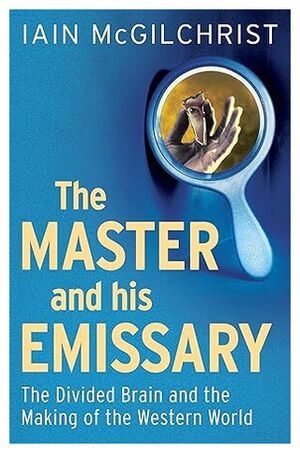
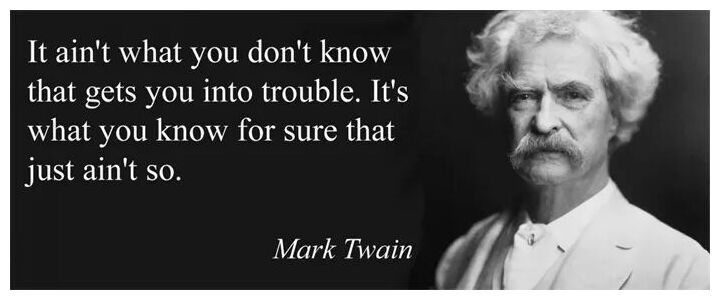
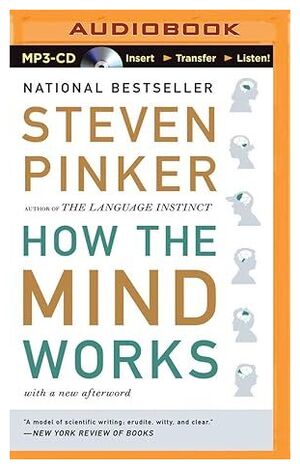


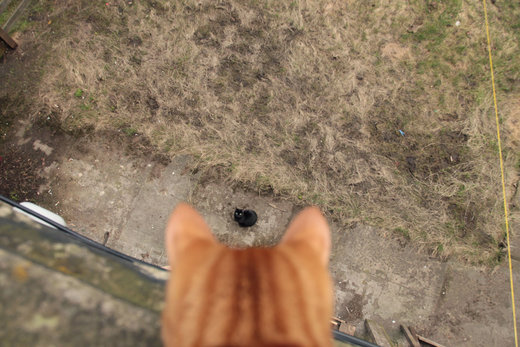
Reader Comments
to our Newsletter